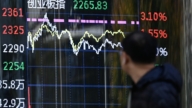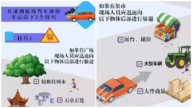【新唐人2013年01月05日讯】中国全国人大常委会通过了实行“网路实名制”草案,外界都预见中共限制网路信息自由的行动会进一步升级。而深入中国的外媒记者指出,虽然国外很多主流媒体被封杀,每天千百万审查者删除网上与人权有关的内容,但数不清的推销毒品、枪支或卖淫的网站却不被封杀。外媒记者对此深感奇怪。请看报导。
《纽约时报》报导,在中国通过互联网非常容易就买到定价50美元或100美元的“冰毒、摇头丸”或者“可卡因”!有的网站宣称:“提供24小时上门运送服务,货源长期而稳定。只要打个电话,将在一到五个小时内将货品送到手中。”服务范围覆盖中国数百座城市。
同样,在网上花几分钟时间也能找到销售枪支的商业网站,能购买到斯普林菲尔德式9毫米手枪,中国军用54式半自动手枪,步枪等,甚至还有消音器!
文章还写道,中国网路上还充斥着性和卖淫业,丙种“羟基丁酸盐”,就是所谓的“约会迷奸药”,在网上公然贩卖,有关的药效说明令人不寒而栗。
《纽时》指出,所有这些在中国都是非法的,麻醉品走私贩通常会被判处死刑。但这似乎并不是政府工作的重点,因为这些网站根本没有被关闭或者遭到遮罩。
《纽时》还指出,中共遮罩Facebook、YouTube以及《纽约时报》、《彭博通讯社》等网站,对推销毒品、枪支或卖淫的网站却不限制,这难道不奇怪吗?
79年大陆“民主墙”创办人之一 蔡桂华:“那些危害虽然很大,但不会触动它的统治根基,但是你如果涉及到他的维稳、涉及它的政治方面,那是要动摇他的根基,那就不一样。所以它是厚此薄彼,这个是不反应,那个就不行了,那个一放开,马上就轰然倒塌了。能行吗!”
民主人士蔡桂华还指出,中共暴政靠的是严厉镇压与欺骗,也就是一手软一手硬,来维系它摇摇欲坠的统治。如果把讯息放开,它的谎言就会像纸一样容易被捅破,那么,可能就会导致政权马上崩溃。
德国《南德意志报》文章“红色共和国,黑色管道”指出,中国历来是许多假货买家的天堂,但现在有些德国名牌的真货,也以极其低廉的价格在《淘宝》等网站上销售,但卖家并没有得到专卖授权,德国原产厂家对此一无所知。中国监管当局对网路言论看管甚严,但对于网路上的一些不法商业行为却无动于衷。
另外,瑞士《新苏黎世报》网路版文章指称,中国博客实名制、封杀海外网站、有一支领薪水的宣传大军在影响着各种讨论话题,并且将那些“走得太远”的内容删除,而这些手段,仅仅是为了保护中共在意识形态上的主导权而已。
美国哥伦比亚大学人权研究所访问学者谷川:“你在网上发一个有关键字的东西,有些网站根本就发不出来。所以他这是一种过滤的手段,用关键字就把很多敏感信息过滤掉了。还有通过那种,像新浪微博,他就通过人工的审查。”
谷川还表示,中国的网站不能触碰中共的底线,如果触碰了,轻则将网站关闭,重则将网站创办人抓起来判刑。2007年《爱琴海》网站总编张建红,笔名力虹,被中共以“煽动颠覆国家政权罪”判处六年徒刑,2010年,力虹在狱中被迫害致死。
《纽约时报》指出,互联网的控制让许多中国年轻人感到厌恶,他们对于多党民主也许并没有什么想法,就是想看看YouTube上的视频。
《纽约时报》对新一届政治局提出建议,说:能不能去管管那些销售枪支和毒品的网站,而放过那些交流观点和信息的网路空间呢?
采访/易如 编辑/宋风 后制/周天
Exchanging Views Is Censored in China but
not Firearms and Drugs
Chinese National People’s Congress Standing Committee
passed the draft of the implementation of the “Internet real-name system”.
The world foresees the Chinese Communist Party (CCP) adding
to its action in order to restrict online freedom of information.
Foreign media reporters said that most foreign media
are blocked.
Every day millions of censors delete online contents
regarding human rights.
However, countless sites of drugs, guns or prostitution
are not being blocked.
Foreign media correspondents find this very strange.
Let’s look at the reports.
The New York Times reported you can buy methamphetamine,
ecstasy or cocaine for $50 or $100 via the Internet in China.
Some sites claim to provide 24-hour home delivery service,
with long-term and stable supply.
Just making a phone call, one can receive the drugs
within one to five hours. Services cover hundreds of cities in China.
Similarly, one can find commercial websites selling guns;
the Springfield-type 9 mm pistol, Chinese military 54-style
semi-automatic pistols, rifles, and even silencers!
The report also said that the Chinese Internet is filled with
pornography, prostitution and even the “date rape drug."
Their open trafficking online chills one’s bones.
The report also pointed out that all those activities are illegal
in China, narcotics smugglers usually get death sentence.
But authorities do not focus on that,
so these sites have not been shut down or disguised.
The CCP masked the websites of Face book,
YouTube and the “New York Times", and “Bloomberg".
The websites selling drugs, guns or prostitution
are not closed down. Isn’t this strange to you?
Cai Guihua, a founder of the “Democracy Wall" in 1979:
“Those activities are dangerous.
They do not touch the foundation of the ruling party however.
If you do something to affect the CCP stability and
involve its political aspects, it will be a different matter.
Therefore, it is not a matter of favoritism. If the CCP does not
react, it will soon collapse. So, it has to do something.”
Cai Guihua also pointed out that the CCP has relied
on harsh repression and deception to maintain its power.
It is using one soft hand and one iron hand policy to
maintain its shaky reign.
If it allows freedom of information, its lies will be easily
pierced, like paper. The regime may collapse immediately.
German “Süddeutsche Zeitung" published an article
called “Red Republic, Black Piping".
The article said that China has always been
a haven for many fake goods buyers,
but some German genuine named brands are also sold
at extremely low prices on the “Tobacco" site.
However, they have not obtained authorization from the
manufacturers, who know nothing of these illicit activities.
Chinese regulatory authorities keep very strict rules about
network information, but nothing for unscrupulous businesses.
The web edition of the Swiss “New Zurich” also wrote
an article alleging the CCP uses real name system to block overseas sites.
There is a salaried propaganda army impacting
a variety of discussion topics.
They delete the contents of those" being too far off” to
protect the dominance of the CCP’s ideology.
Gu Chuan, a visiting scholar from Columbia University
Institute for Human Rights: “If you use a keyword that is monitored, you cannot send the message.
That is filtering, using key words
to filter out sensitive information.
Another way is through a manual review,
like they do to microbloggings on Sina website.”
Gu Chuan believes that the Chinese websites
cannot go near the CCP’s boundary.
If you touch it, your website may be shut down or
you may be arrested and sent to jail.
In 2007, the founder “Aegean" website, Zhang Jianhong,
pen name Lihong was sentenced to six years jail for “inciting subversion of state power."
In 2010, Lihong was tortured to death in prison.
The New York Times pointed out that young people in China
feel disgust regarding controlling of the Internet.
They do not think too much of democracy.
All they want is watch some videos on You Tube.
Regarding the new Politburo recommendations,
the New York Times said:
“How about taking a look at those websites selling
guns and drug and leave some room for exchanging views and information on the network?”




























